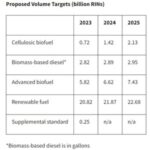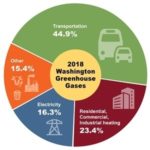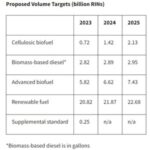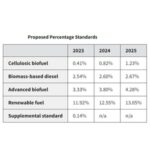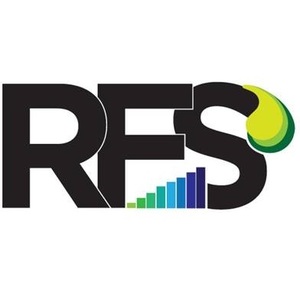Biofuel groups discuss upcoming RFS ‘set’ rule
Energy Disrupter
ADVERTISEMENT
Representatives of Growth Energy, the National Corn Growers Association, Renewable Fuels Association and Clean Fuels Alliance America on Sept. 22 discussed the U.S. EPA’s upcoming Renewable Fuel Standard “set” rule during a virtual briefing held by Fuels America.
The regulations establishing the RFS include statutory targets through 2022. Starting in 2023, the U.S. EPA is given more discretion in setting annual blend targets. The upcoming “set” rule will be the first annual renewable volume obligation (RVO) rulemaking under which the EPA exercises that discretion.
The EPA earlier this year reached a consent decree agreement with Growth Energy that requires the “set” rule to be proposed by Nov. 16, 2022 and finalized by June 14, 2023.
During the virtual briefing, Growth Energy CEO Emily Skor highlighted the importance of the RFS in reaching U.S. clean energy goals and called on the EPA to maximize the full potential of the program.
The statutory volumes included the RFS regulation through 2022 included an implied statutory RVO of 15 billion gallons for ethanol. Moving forward, the agency will have more flexibility in setting RVOs, Skor explained, noting that the agency must now consider six statutory factors when setting annual blend requirements. These factors include those related to climate change, rural economic development and energy security, Skor said. She explained that the six factors “really express Congress’s directive to the agency to continue to expand the role of biofuels in our nation’s transportation fuel supply.”
Skor called on the EPA to propose a multiyear “set” rule, which she said provides more certainty to the biofuels industry and would help to drive innovation. She also spoke about the importance of updating the agency’s lifecycle emissions modeling to give full credit for innovations taking place at the plant and at the farm.
RFA President and CEO Geoff Cooper spoke about the carbon impacts of the RFS and said he believes a strong “set” rule can jumpstart and help further efforts around energy security, rural development and carbon emissions reductions. Cooper also stressed that the RFS is the only U.S. program that is focused on decarbonizing transportation fuels.
Cooper spoke out against efforts from the oil industry to implement what he called creative renewable identification number (RIN) schemes. These schemes, such as RIN multipliers, would allow more than one RIN to be generated for a gallon of renewable fuel, undercutting demand for renewable fuels by requiring fewer physical gallons to be blended.
In addition, Cooper called on the EPA to take the opportunity offered by the “set” rule to update its understanding of the carbon impacts of biofuels by revisiting its modeling and lifecycle analyses. The agency last looked at those lifecycle analyses in 2009. Cooper urged the agency to adopt the U.S. Department of Energy’s GREET model, which is updated annually and includes the newest and best data on transportation fuels.
Clean Fuels CEO Donnell Rehagen said his organization is urging EPA to take an aggressive approach to setting the RVOs for biomass-based diesel. He said approximately 2 billion gallons of additional renewable diesel is expected to come online in the next 2.5 years, including 1 billion gallons over the next 12 months. The RVOs set by the agency should reflect that upcoming production, he explained.
NCGA CEO Jon Doggett also took part in the virtual briefing, discussing how the RFS has helped bring innovation to the U.S. by creating stable demand for feedstocks.


